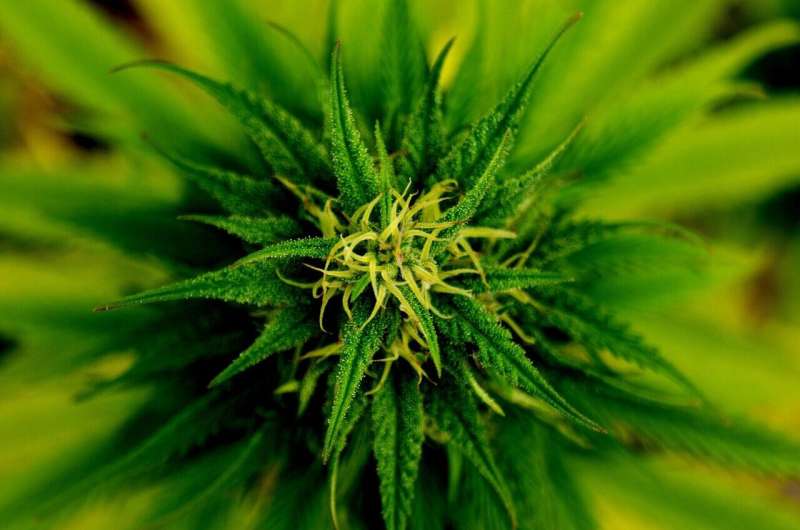A New Zealand study into the therapeutic benefits of cannabis has added to the growing body of evidence that it has positive effects on pain, sleeplessness and anxiety, researchers say.
Of the 213 people in the study who were taking cannabis for therapeutic reasons, almost 96 percent reported that taking cannabis helped them with a number of conditions, and 49 percent said they had been able to reduce, or entirely stop their prescription medicine.
The study, a collaboration between researchers from the University of Otago, Victoria University, and the University of Auckland, aimed to explore people’s experiences of taking cannabis therapeutically, to gather data on the quality of products they were using, their efficacy and what kinds of effects they had experienced.
Participants were patients who had medically diagnosed conditions and were recruited through an established, experienced Green Fairy and through an Auckland-based cannabis clinic.
Study co-author Dr. Geoff Noller, of the Dunedin School of Medicine’s Bioethics Centre, says as with several other studies undertaken in Aotearoa New Zealand, there was consistent reporting of positive effects on pain relief, sleeplessness and anxiety.
“This is consistent with findings across multiple studies in Aotearoa and internationally.”
Across the sample, 96 percent of participants reported that taking cannabis helped them. The most common themes for therapeutic efficacy were pain management, with 96 percent of participants reporting cannabis helped, difficulty sleeping (97 percent) and mental health issues (98 percent). Of the participants who took cannabis for other reasons, such as autism, attention deficit hyperactivity disorder, post-traumatic stress disorder and difficulty eating, 98 percent found taking cannabis helped.
“An important finding of the study was that participants either decreased or stopped their use of prescribed medicines, many of which were opioid based,” Dr. Noller said.
“This both reinforces that they experienced some actual effect from using cannabis in that they ceased or decreased other medications with recognized efficacy, and in the case of many of these other medications, they reduced their use of potentially more problematic medications. Opioids, for example, have well known issues in terms of dependence and other negative side effects.”
The researchers are not suggesting there is not a place for prescribed medicines, nor that it should be an “either/or” decision.
“There is a place for both approaches with the results of this study suggesting that cannabis products could have a role in treating patients with chronic pain and other conditions refractory to treatment by conventional means,” he says.
However that relied on an affordable and widely accessible medicinal cannabis system. A previous study Dr. Noller was involved in showed the majority of people who used cannabis for therapeutic reasons sourced it through illicit means due to the barriers of sourcing it legally.
“At present, current regulations (both for medicinal cannabis and drug checking) appear to be creating problems for many New Zealanders who otherwise report positive benefits from their use of medicinal cannabis.
“Specific barriers include cost, with currently available medicinal cannabis products being too expensive for many New Zealanders due to the compliance costs of production imposed by regulations, and also the lack of knowledge about it for physicians, leading to a reluctance to prescribe, in many cases.”
Current policies need to be evaluated, particularly those associated with the current medicinal cannabis scheme that create barriers to access, he says.
And more “real world studies” examining the experiences of people using medicinal cannabis are needed.
“However, these need to be augmented by doing more creative clinical research, for example, trials incorporating active placebos, the success of which could reduce physicians’ concerns about efficacy. But this takes funding and commitment from researchers who may feel nervous about working with cannabis, with its history of illicit use due to historic policies that are now being reformed.”
“These attitudes need to change.”
The work is published in the journal Drugs, Habits and Social Policy.
More information:
Fiona Hutton et al, Patients experiences of therapeutic cannabis consumption in New Zealand, Drugs, Habits and Social Policy (2023). DOI: 10.1108/DHS-12-2022-0049
Citation:
Study results prompt call for medicinal cannabis policy evaluation (2023, May 29)
retrieved 29 May 2023
from https://medicalxpress.com/news/2023-05-results-prompt-medicinal-cannabis-policy.html
This document is subject to copyright. Apart from any fair dealing for the purpose of private study or research, no
part may be reproduced without the written permission. The content is provided for information purposes only.


